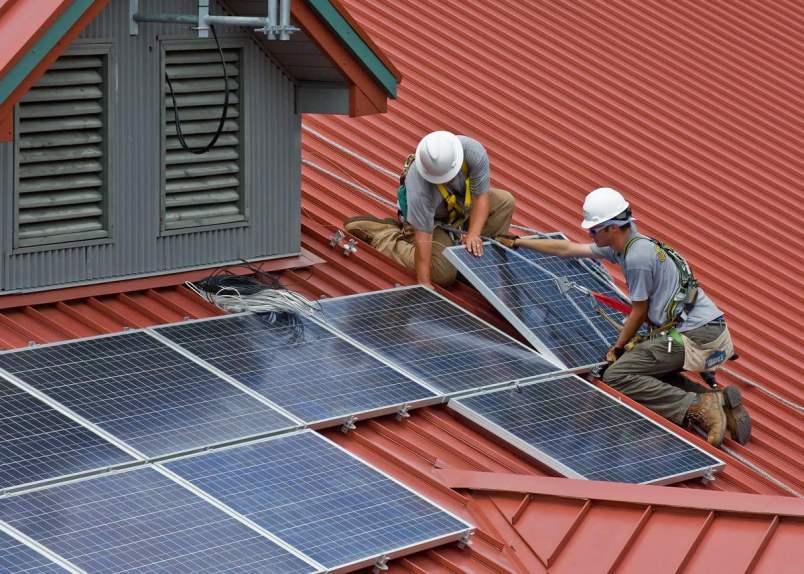Google has made its largest clean energy investment bet to date by committing $280 million to finance a start-up that organizes residential adoption of solar panels.
Both Google and start-up Solar City announced the financing Tuesday morning.
Solar City is a company based in San Mateo, Calif., that provides solar panel installations for residential customers by leasing the panels. Aided by federal, state and local subsidies as well as investors, the company’s goal is to make the process of generating and using solar power at the residential level easier for consumers — and ultimately cheaper than obtaining electricity generated by traditional means from their local utilities.
Solar City’s CEO Lyndon Rive said that he hopes Google’s investment encourages similar kinds of investments from companies that are sitting on piles of cash.
“The largest 200 corporations in the U.S. have more than $1 trillion in cash on their balance sheets,” Rive said in a press statement. “Investments in solar energy generate returns for corporate investors, offer cost savings for homeowners, create new, local jobs for jobseekers, and protect the environment from polluting power sources. If more companies follow Google’s lead, we can dramatically reduce our nation’s dependence on polluting power.”
Google’s investment in the residential solar market at this point is particularly significant because the market was dealt a near-death blow last July when Fannie Mae and Freddie Mac stopped buying or refinancing mortgages of homes partly financed by Property Assessed Clean Energy (PACE) loans.
The loan structure is a home solar-panel financing idea that started off in Berkeley, but subsequently gained widespread popularity and traction across the nation with 23 states and the District of Columbia implementing versions of it to encourage adoption of residential solar power.
PACE allows property owners to obtain loans from a city or other public entity to finance the big up-front cost of solar panels that homeowners pay off over time. The loans are paid back as part of the property tax on the home. If the homeowner moves, the loan stays with the property.
But last July, the Federal Housing Finance Agency advised Fannie Mae and Freddie Mac that if a homeowner defaults on their loan, the lenders that would be given priority in getting paid back would be those making the PACE loans and not the federal agencies.
Shortly after that advisory was issued, the California Energy Commission yanked $30 million that it had allocated to fund PACE loans, and other similar programs around the nation ground to a halt.






